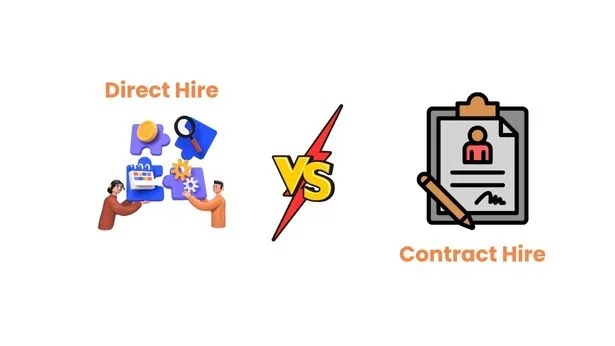Everything You Need to Know about Direct Hire and Contract Hire
Understanding the pros and cons of direct hire vs contract hire is critical in hiring talent or looking for a job. Another way to say it is that both types of employment have pros and cons. One option may be better than another, depending on their needs as well as the employer’s personality, process, or hiring practices.
Whether a job seeker asks when they are deciding if they should take an opportunity in contract or direct hire, or an employer is deciding their hiring approach, once you understand the difference between direct hire vs contract hire, you will have the tools to make the right choice.
Difference Between Direct Hire and Contract Hire

Before discussing the advantages and disadvantages, it is critical to define what direct hire and contract hire are.
Direct Hire: Direct hire refers to an employment status in which an employee is hired directly by the company or organization on a full-time basis. Direct hire employees become employed by, and part of, the organization and must follow the organization’s policies of benefits, such as medical insurance, retirement benefits, sick leave, vacation days, etc., as well as its employment policies.
Contract Hire: In contract hire, the individual works for a company for a defined period or within a specific project scope; however, they work through a staffing agency rather than directly with the company. Contract hire workers may not receive benefits from the company and are typically paid on an hourly basis or by project.
Pros and Cons of Direct Hire and Contract Hire
Let’s weigh the pros and cons of each to help you better decide what would be a better fit for you.
Pros of Direct Hire Employment
1. Job Security and Stability: A direct hire employee will have a lot more job security with long-term employment.
2. Employer-sponsored Benefits: Employees can take advantage of benefits like health insurance, vacation, retirement plans, and, in some cases, bonuses.
3. Opportunities for Career Advancement: Full-time employees are more likely to have opportunities to advance and grow their careers.
4. Company Culture: Direct hires are more likely to develop better relationships with coworkers and feel more engaged in the company’s culture.
5. Consistent Income: There may be some form of monthly consistency (if hired salaried) with income, which may help with personal budgeting and stability.
Cons of Direct Hire Employment
1. Less Flexibility: A full-time employee will have less flexibility with hours and location.
2. Lengthy Recruitment Process: The hiring and onboarding process is generally a lengthy process.
3. Less Variety: Direct-hire employees may work in one role or on one project for longer, limiting skill development.
Pros of Contract Work
1. Flexibility: Contract roles frequently provide flexible hours, offering variations of remote work.
2. Variety of Skills: Contract workers will usually be working on very different projects and industries, allowing for a wider breadth of experience.
3. Quicker Process: Contract roles typically have a quicker onboarding process.
4. Higher Hourly Rate Potential: Some contracts allow higher hourly rates to help mitigate the lack of benefits (like health care or retirement savings).
5. Choosing a Company: Contract roles can act as a great ‘trial’ period and may evolve into a regular role if both parties are in agreement.
Cons of Contract Work
1. Lack of Benefits: Contract work generally does not come with benefits like health care, paid time off, or retirement savings.
2. Job Stability: Contracts are often temporary and may offer little assurance of ongoing work.
3. Loneliness: Some contract workers may feel less a part of the culture at the company and are more distant from teammates.
4. Money: With contracts, work availability can fluctuate, leading to turbulent income.
Should I Choose Contract or Direct Hire?
Choosing between contract and direct hire depends largely on career goals, lifestyle, and financial objectives.
If stability, benefits, and career development are important to you, an option for direct hire option may be right for you. Direct hire offers a consistent income, guaranteed benefits, and steady job security that leads to overall job satisfaction.
If you prefer flexibility, unique experiences, and possibly a higher hourly wage, then contract hiring may be more to your liking. This is ideal for people who prefer project work or do not commit to a permanent position while they look at a few options across different industries.
Also Read: How AI is Redefining Recruiting
Is Contract Hiring Better Than Full-Time?
There is no easy answer to the question, “Is contract hiring better than a full-time hire?” Contract hiring is ideal for a company that needs temporary expertise for a peak workload or specialized project. It allows an organization to remain flexible and helps to save money on overhead costs associated with benefits and long-term commitments.
For workers, contract hiring can be better if they want variety, independence, and the chance to develop a diverse and varied portfolio of skills. But, without the benefits and the job security, contract positions are not good for everyone, especially long term.
Final Call on Direct Hire vs Contract Hire
Choosing between direct hire vs contract hire requires consideration of direct hire vs contract hire pros and cons and your personal/organizational goals. There are many places for both direct hire and contract hire methodologies in today’s workforce, and if you understand direct hire vs contract hire, it helps you make informed decisions.
Whether you question, “Should I have contract or direct hire people?” or “Is contract hiring better than full-time hiring?”, it is important to realize that the best employment choice is the one that fits your needs, values, and long-term purposes. By factoring in direct hire employment advantages and the contract work flexibility, you may find a form of employment that suits your career direction and lifestyle.
Ready to decide between direct hire and contract hire? Whether you want job stability or project-based flexibility, the right choice can shape your career path. For expert guidance, contact Time Agency Group, your trusted tech employment agency, and find the role that perfectly fits your goals.
FAQs Direct Hire vs Contract Hire
Q1. What is the difference between direct hire and contract hire?
Direct hire is a permanent position with company benefits, while contract hire is a temporary role, often for specific projects.
Q2. Which is better: direct hire or contract hire?
It depends on career goals; direct hire offers stability, while contract hire offers flexibility and varied experience.
Q3. What are the main benefits of direct hire employment?
The benefits of direct hire employment include job security, health benefits, retirement plans, and career growth opportunities.
Q4. Is contract hire good for long-term career growth?
Contract hire can build skills quickly, but may lack the long-term growth and benefits that come with direct hire.
Q5. Does direct hire offer better pay than contract hire?
No, contract roles sometimes pay more hourly, but direct hire offers consistent income and benefits.
Q6. Which option is better for employers?
Direct hire is better for long-term positions, while contract hire is ideal for short-term projects or seasonal needs.
Q7. Can contract hire lead to a direct hire position?
Yes, many companies convert contract roles into permanent jobs based on performance.
Q8. How should I decide between direct hire and contract hire?
In order to decide, consider your financial needs, career goals, and desired work-life balance before choosing.
Related Article: Remote Work and Its Impact on IT Recruitment






